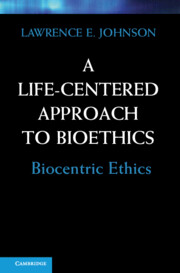4 - Some Background
Our Good
Published online by Cambridge University Press: 05 June 2012
Summary
Many of our quandaries and difficulties in bioethics, as well as in other connections, are due to our having inherited inadequate or mistaken views about our good. Any ethical system must in some way take into account what is good or bad for us, harmful or beneficial. Bad assumptions lend themselves to bad ethics. Many ethical systems fail us by presupposing inadequate conceptions, or offering us none at all, leaving us to grope in a vacuum. Bad assumptions about what is good or bad for us have been as harmful as bad assumptions about what we are, and often enough they have been systematically related. Here I look at some of the leading conceptions of our good, and I attempt to show that they are wrong or inadequate because of flaws in the presumptions about our character and needs as living human beings.
We ought not to wrongfully harm others, an ethical system will tell us, and it will go on to draw conclusions about what sort of thing is or is not wrongful. However, that is only a part of “wrongfully harm others.” What about harm and others? These shortcomings create difficulties for us in deciding how to act rightfully rather than wrongfully. For instance, is euthanasia or abortion harmful to the living being whose life comes to an end? Is life always good for a person? Can death ever be good for a person? Can it be neither good nor bad? We also need to ask what it is to be a person. Is a brain-dead human a person? Is a person in a genuinely irreversible coma still a person? Was an anencephalic neonate ever a person? Is an embryo in the early stages of development a person? If not, does harm or benefit to such a being carry any moral weight? Can anything be harmful or beneficial to such a being even if it were deemed to be a person? To be able to do ethics properly and apply it in practical applications, we would do well to have adequate conceptions of what harm or benefit to people consists of, and why. Whatever our answer, we need to ask why that particular answer rather than another one is the correct answer. If it all depends, on just what does what depend?
- Type
- Chapter
- Information
- A Life-Centered Approach to BioethicsBiocentric Ethics, pp. 65 - 82Publisher: Cambridge University PressPrint publication year: 2010



